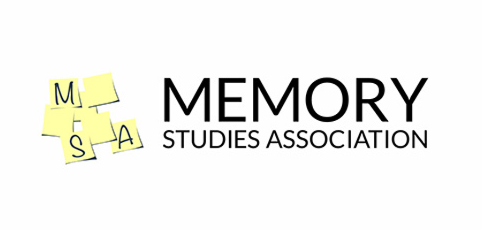The News tab contains the most recent updates regarding the conference.
We kindly encourage you to visit it regularly to stay informed.
Memory and Democracy
28 July - 1 August 2026
Universidad Torcuato Di Tella, Buenos Aires, Argentina
ON-SITE CONFERENCE

Welcome to the official website of the 2026 MSA Annual Conference. The conference will be held from 28 July till 1 August 2026 at Universidad Torcuato Di Tella, Buenos Aires, Argentina.
The Conference will gather scholars from multiple countries and fields working on memory as a political social and cultural phenomenon. It will take place in a city and a region with a long and vibrant tradition of debates around those topics. We invite scholars, activists, artists and experts from all over the world to be part of this event.
2026 marks the 50th anniversary of the coup d'état establishing a military dictatorship in Argentina whose social and political consequences – as in many other countries in Latin America – are still felt today. Since the transition to democracy in 1983 commemorations of the coup have worked in conjunction with a widespread condemnation of the military government, as well as of its expansion of state violence with the help of international allies. In 2006, the Día Nacional de la Memoria por la Verdad y la Justicia (National Day of Memory for Truth and Justice) was officially established.
Today, democratic systems around the world are facing unprecedented challenges. On a global scale, we are witnessing alarming shifts that threaten the very foundations of democratic governance. Against this background, this conference seeks to examine the role of memory in democratic resilience. Under which conditions does collective remembrance reinforce democratic structures? What role has memory played in transitions from authoritarian or dictatorial regimes to democratic ones? And what role has memory played in transitions from democracy to authoritarianism? When does memory promote pluralism, effective communication, and mutual understanding within societies and when does it fail to do so? What role do institutional, political, and cultural actors play in shaping collective memory as a tool for governance? In what ways is collective memory open to manipulation for anti-democratic purposes? How has social media impacted on these processes? What role do popular culture, and the arts play in producing or counteracting oversimplified narratives?
The 10th MSA Conference will provide a forum for scholars to explore the role of memory in relation to foundational democratic values (pluralism, inclusivity, participation, open debate, consensus). While we have identified several central thematic streams below, the conference is open to all fields of interest of MSA members. We encourage interested scholars to treat these themes as guidelines for core areas of work within the broader conference theme of “Memory and Democracy.” The thematic strands may thus be interpreted widely and are intended to have a wide historical, geographical, social, and cultural range.
Thematic Streams:
We invite scholars from across disciplines to contribute to this critical dialogue. The 10th MSA Conference aims to foster interdisciplinary and methodologically diverse discussions that address the evolving relationship between memory and democracy in contemporary societies.
We invite various types of contribution: Individual presentations and full panels, but also roundtables and special events such as performances, screenings, exhibitions, workshops, etc.
To embed the conference in the beautiful city of Buenos Aires, we will also feature a cultural program by cooperating closely with local memory activists, cultural partners, and heritage sites.
Submission platform was open from September 15 until October 31, 2025. The submission will take place through the conference website. Please note that the conference system operates according to Buenos Aires time zone (Argentina Standard Time, GMT-3).
Language: The MSA is committed to transdisciplinarity, cross-regional understanding, and inclusivity. To enable academic exchange across disciplines and regions, this conference will be bilingual (in English and Spanish), including panels that use both languages. All plenary sessions will be interpreted by professional translators. To ensure that all other sessions are as inclusive as possible we are working on strategies to facilitate bilingualism.
Abstracts must be submitted in English to ensure a fair and efficient review process. However, authors are welcome to provide an additional version of their paper in Spanish.
In Buenos Aires, the conference will also host the MSA Forward postgraduate workshop, which will take place on July 28, 2026. MSA Forward allows junior researchers to engage with other scholars in their field and receive feedback from established academics. As in previous years, we aim to provide a safe space for engaging in constructive discussions and an opportunity for networking and building lasting connections across disciplines. More information on the theme and the application process will be published soon.
A limited number of travel grants and fee waivers will be available for the conference. More information will be published in the coming weeks in the travel grants section.

